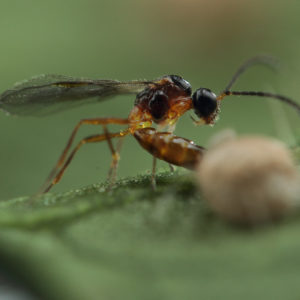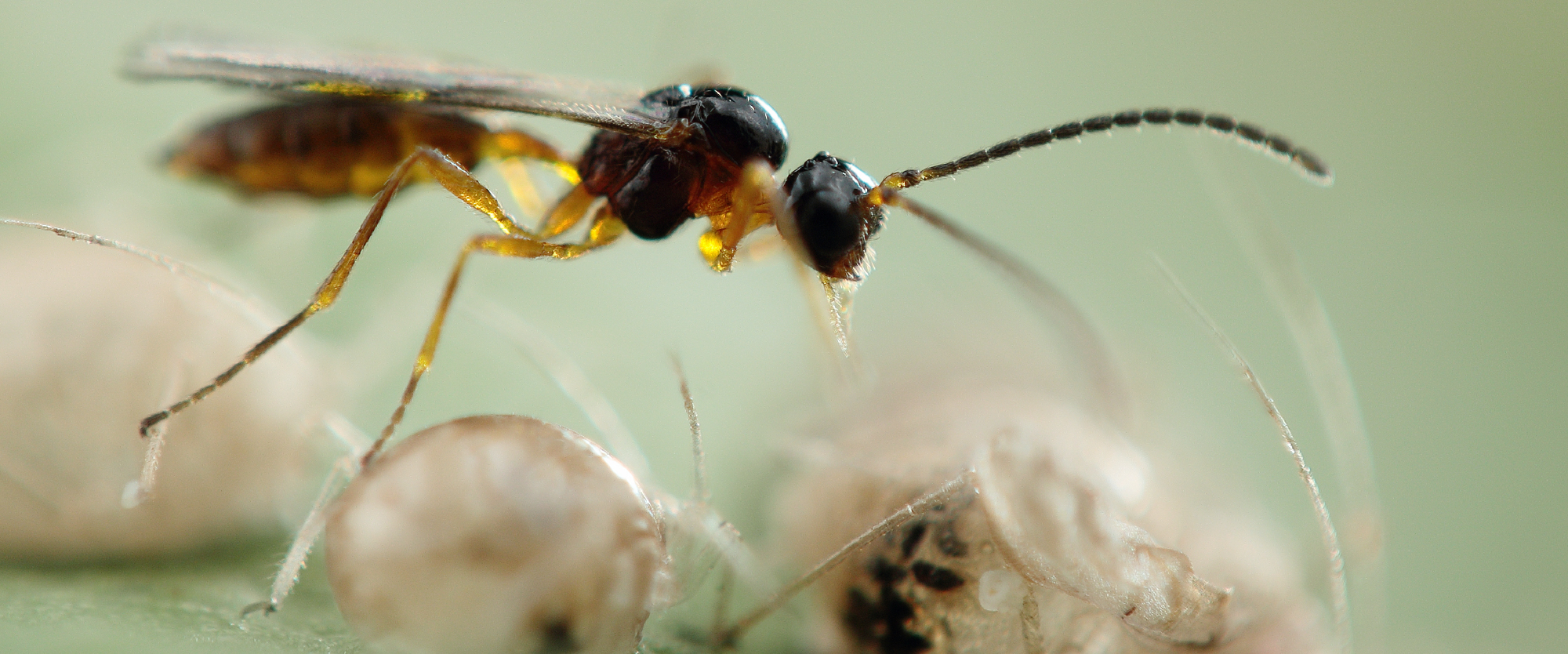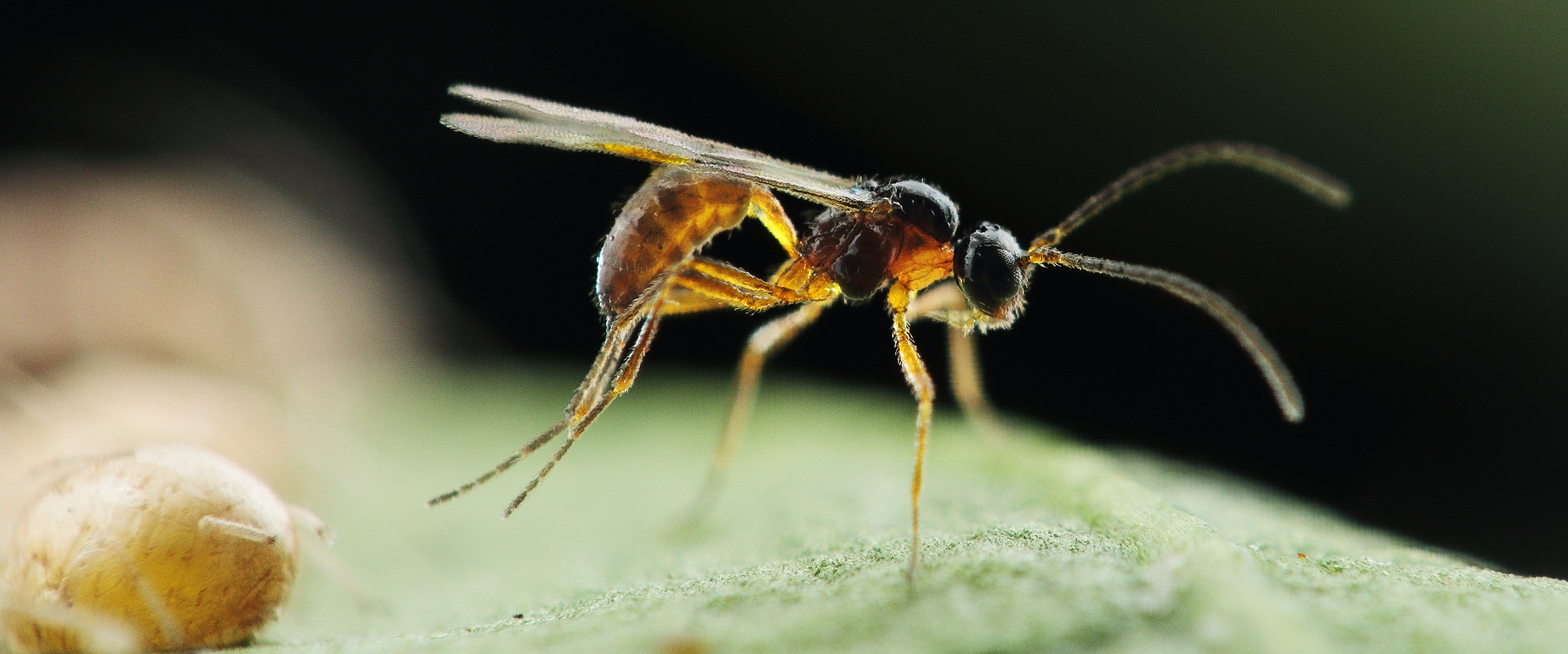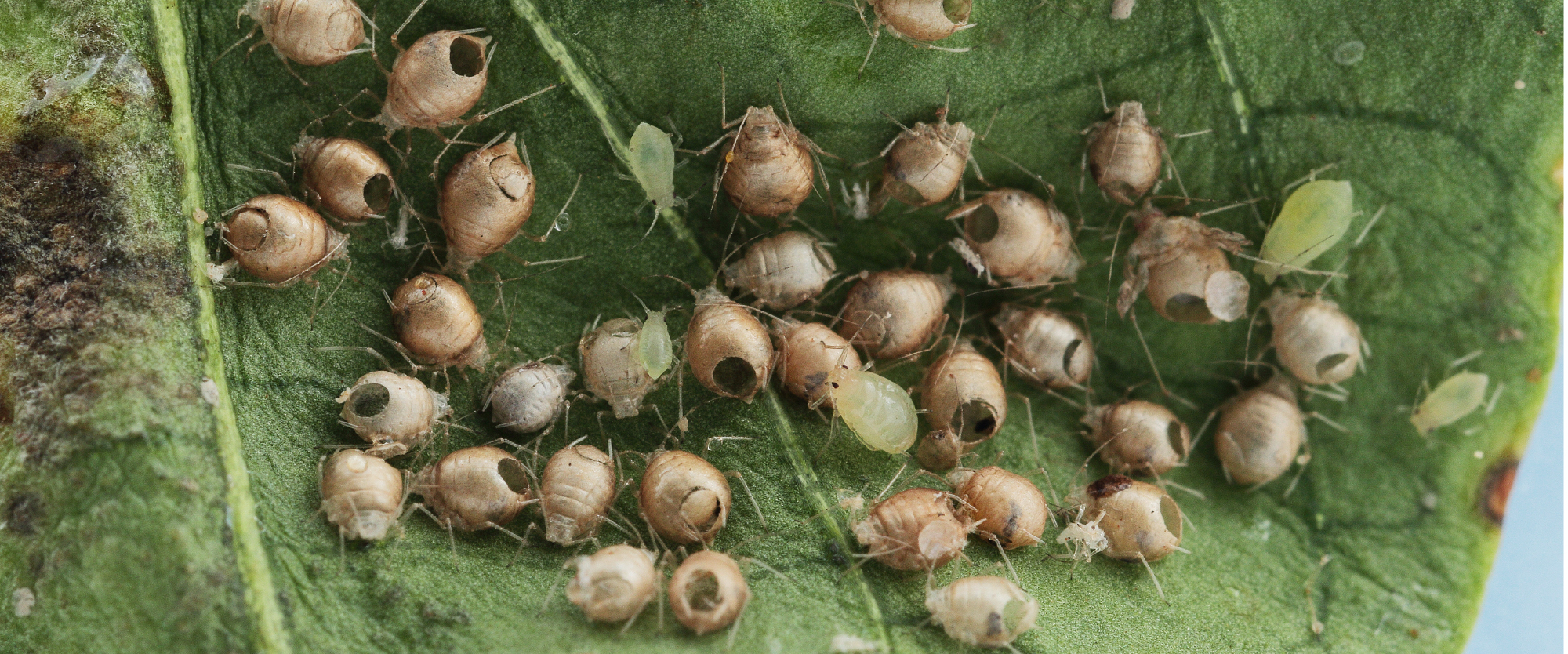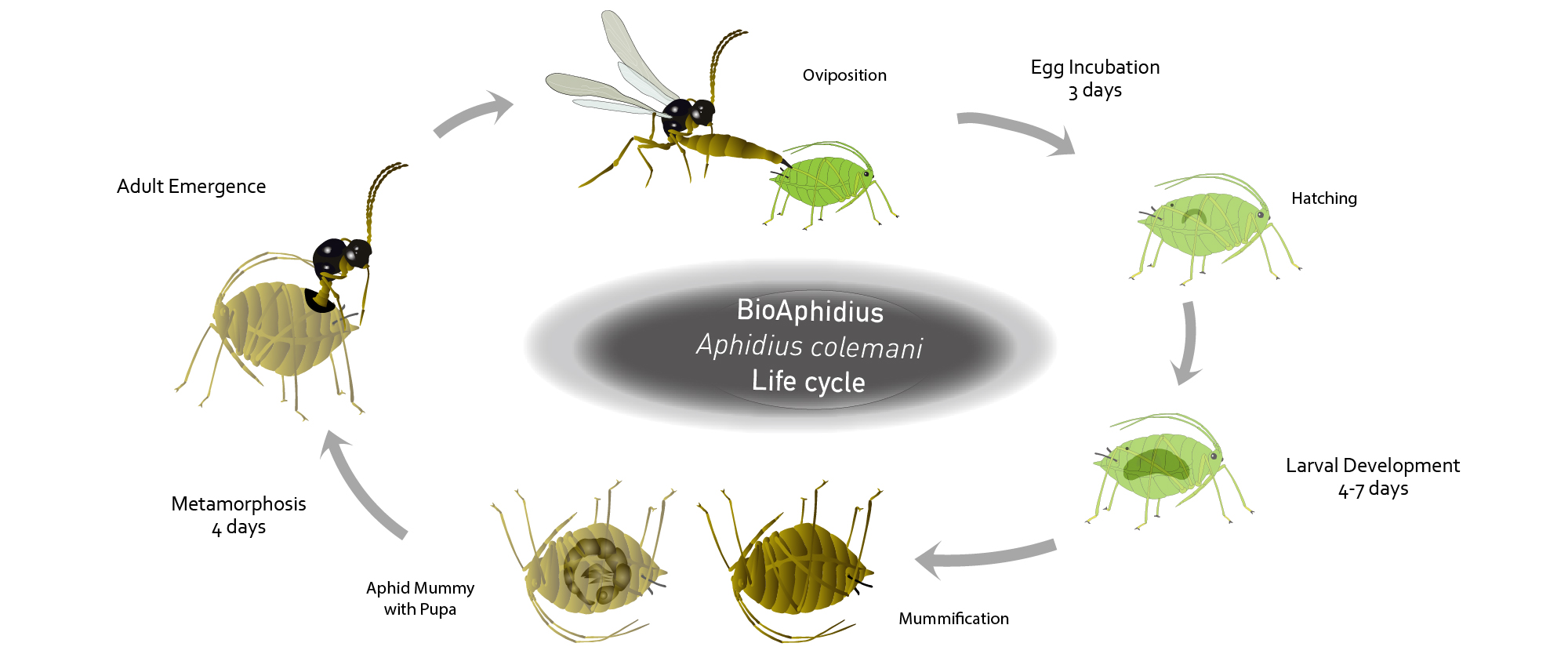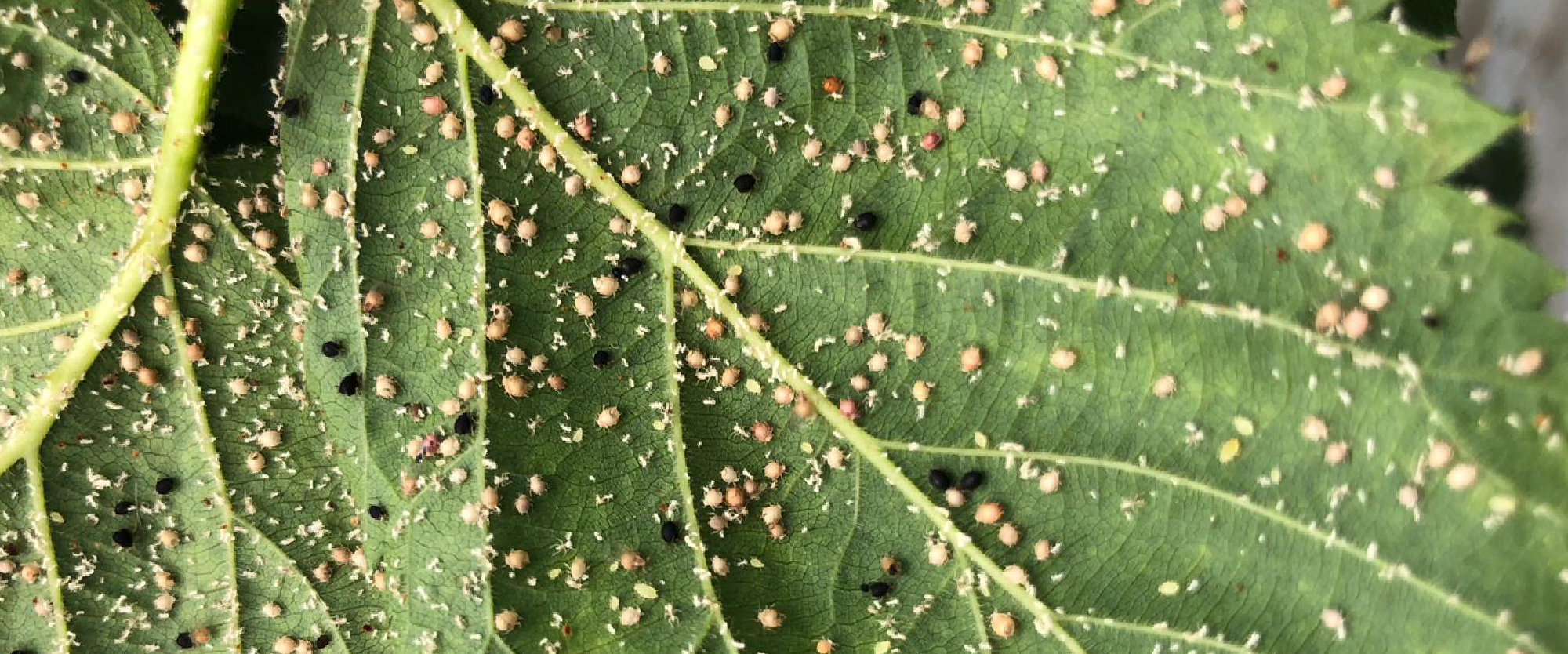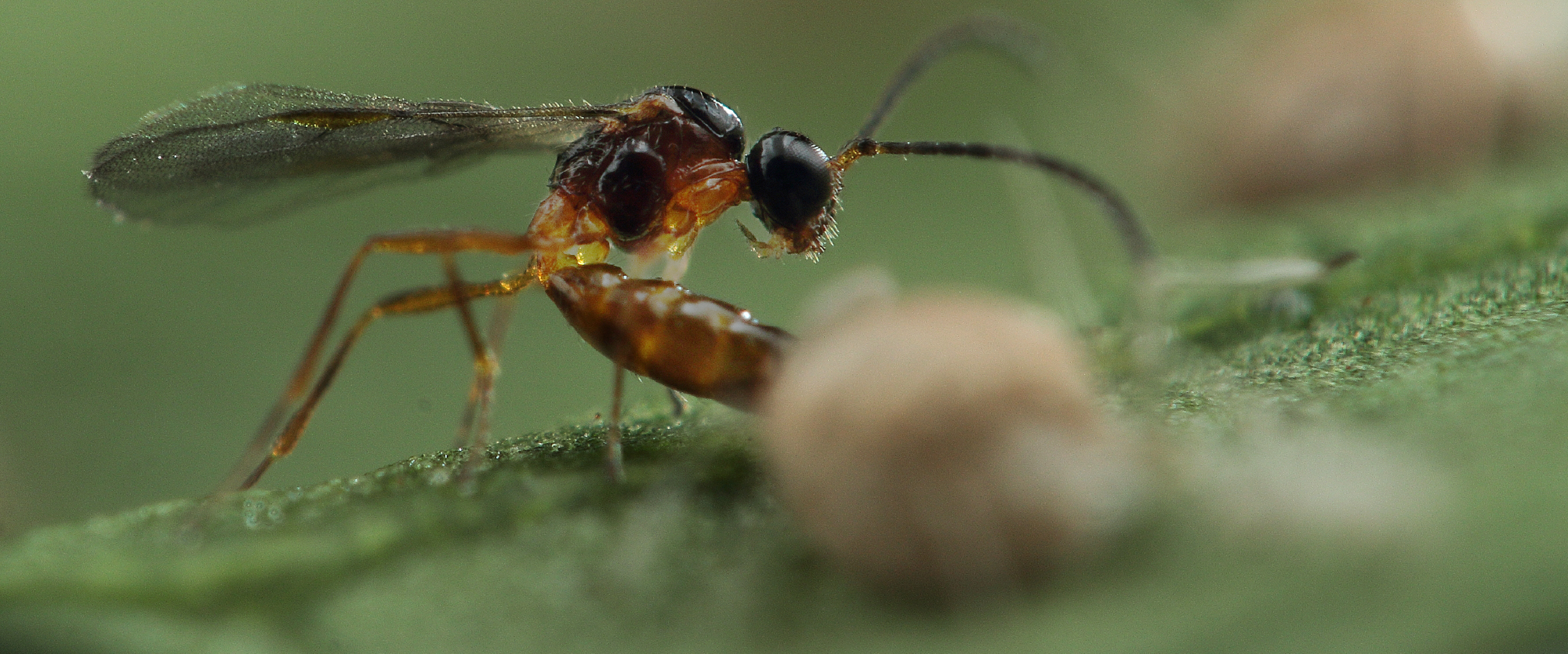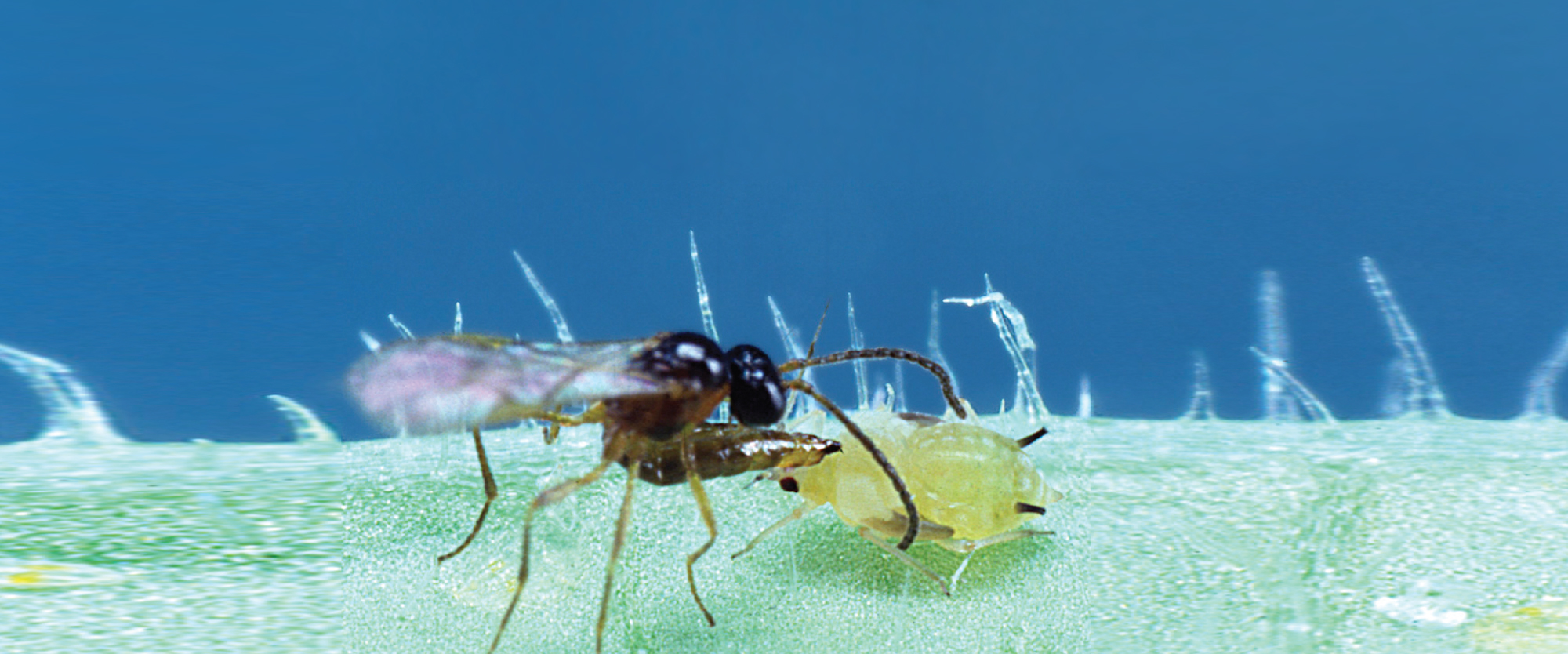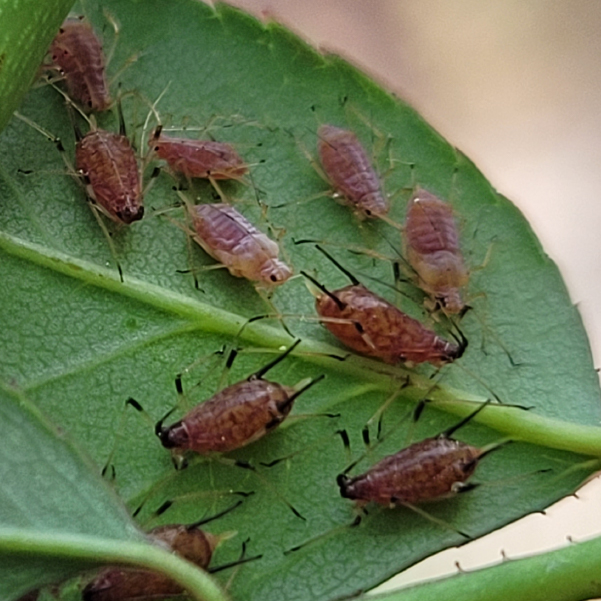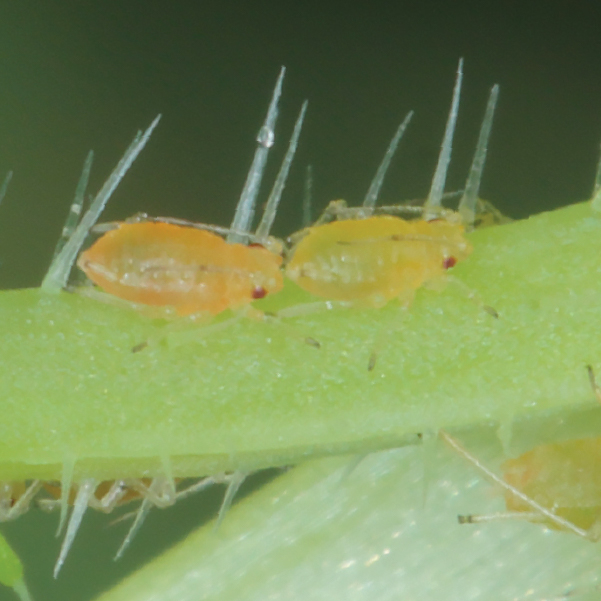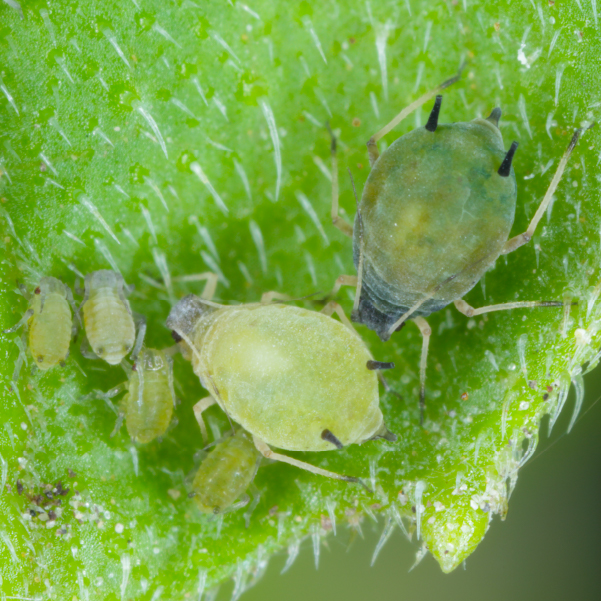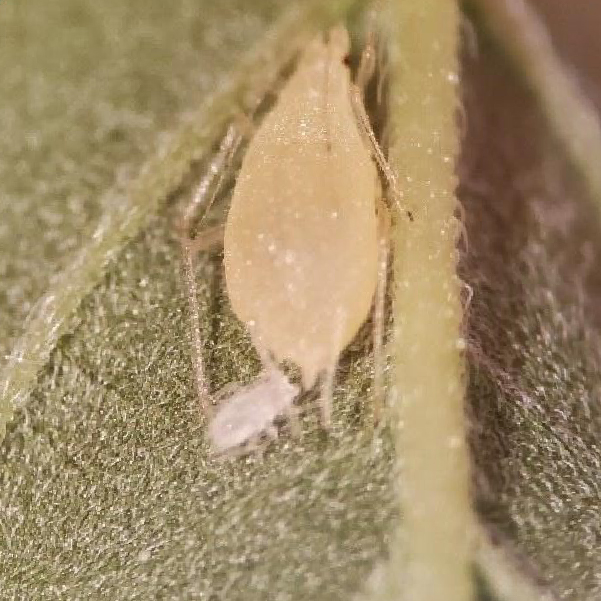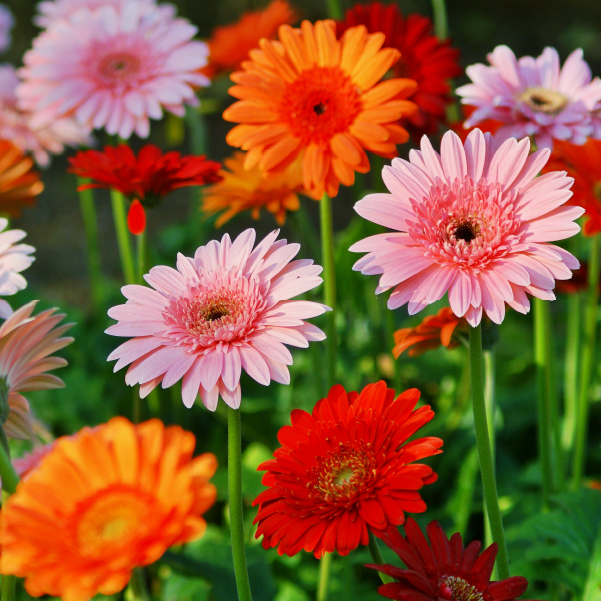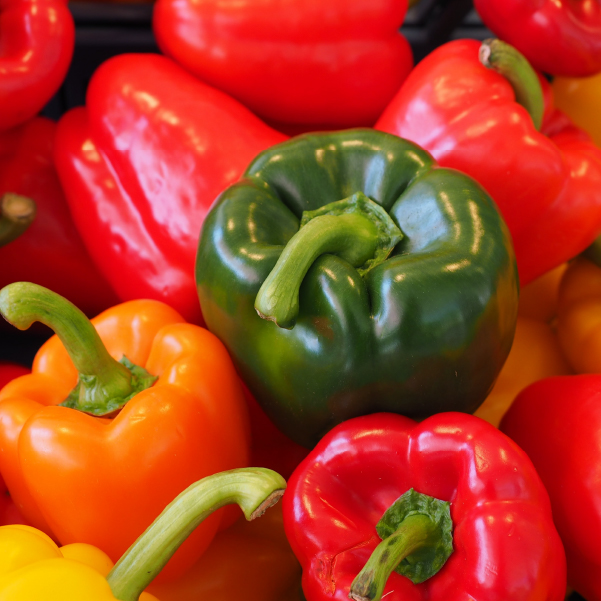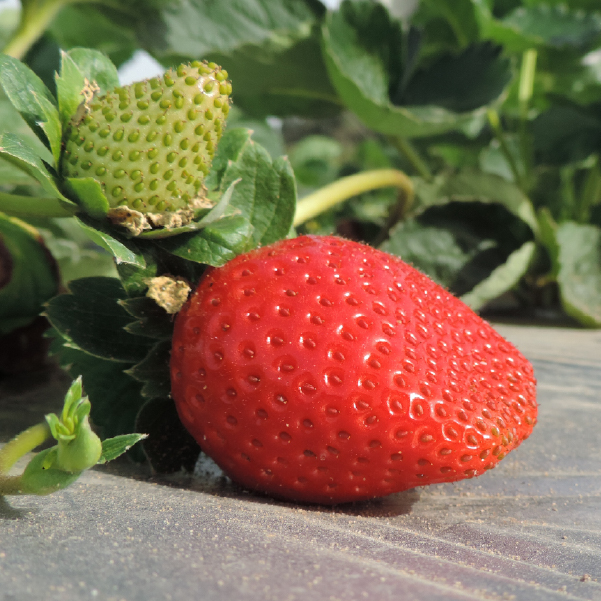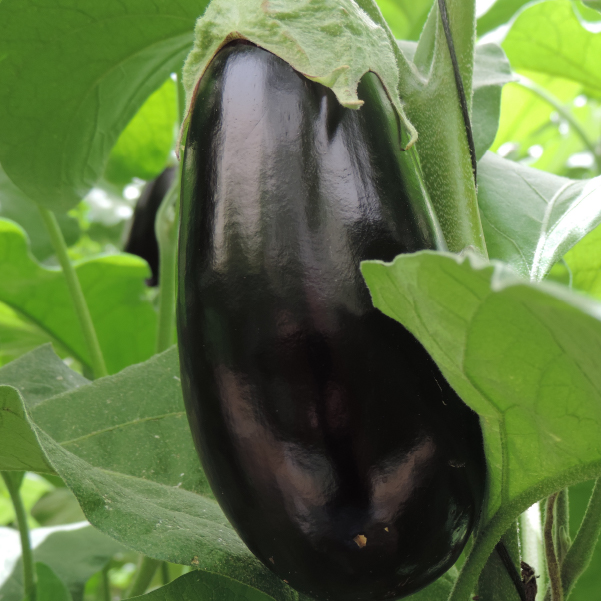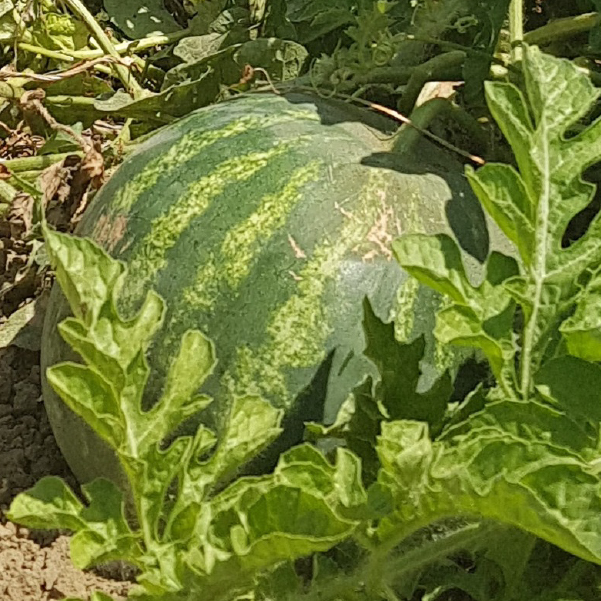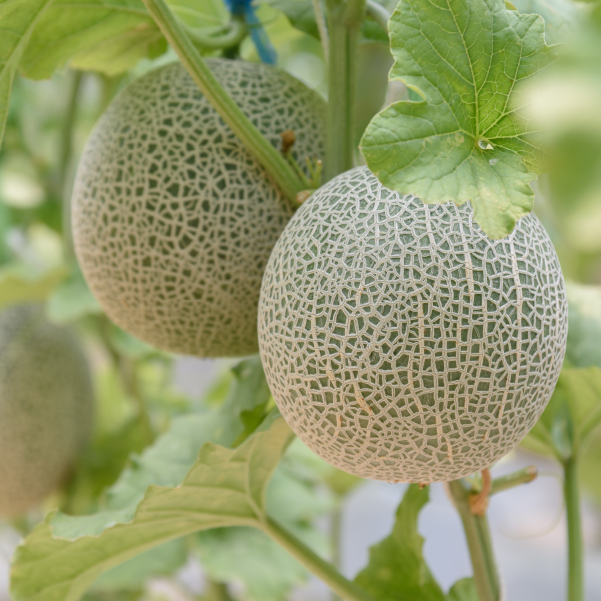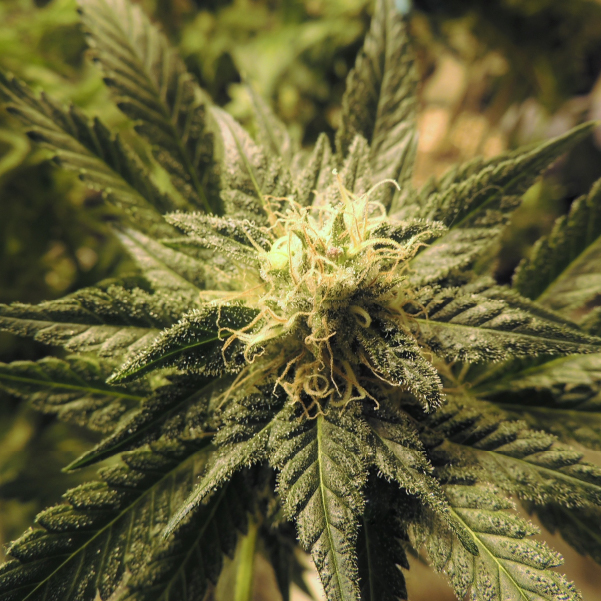BioAphidius (Aphidius colemani) is a parasitic wasp. This polyphagous parasitoid attacks over 40 species of aphids. The adults are small slender wasps with black, brown and yellow coloration, brown legs and long antennae. Aphidius colemani’s size depends on the size of the parasitized aphid, but is usually about 2 mm long.
Aphidius colemani’s activity is optimal between temperatures of 20-30°C. Below 15°C, the adult is inactive. An adult female parasitoid may perform several hundred oviposition attempts during its lifespan, out of which up to 200 eggs will be laid successfully.
Consult your local BioBee representative for additional details.
Target Pests
Product
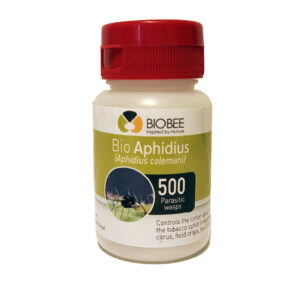
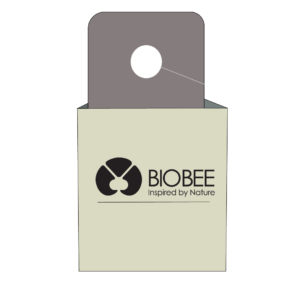
- BioAphidius takes the form of mummies containing the parasitoid’s pupa. Thus the product reaches its destination everywhere in the world while it is “fresh”, with negligible mortality in shipping and with enhanced performance.
- The commercial package contains 500 mummified aphids mixed in fine sawdust. At least 50% of the emerging adults are females.
- BioAphidius is utilized both indoors and outdoors.
Application
- BioAphidius is shipped in temperature controlled boxes which must be kept intact until reaching the end-user.
- Ants may interfere with parasitic wasps, if present, treat the area before applying
- Do not sprinkle the mummies actively from the container.
- Distribute by opening the bottle, allowing wasps to fly out in search of aphids. The bottle may also be emptied into D-boxes and hung in the plant canopy.
- Keep the product at room temperature (not refrigerated!) until emergence has started.
- Do not expose to direct sunlight.
- BioAphidius introduction rates are determined according to the nature of the crop and the rate of aphid infestation.
![]() BioAphidius Beneficial chemical list BioBee 2024
BioAphidius Beneficial chemical list BioBee 2024
Before combining BioAphidius with any chemical pesticide in the crop, please consult your BioBee technical field representative.
Crops
Storage
-

Storage temperature
-

Do not store in sunlight
-
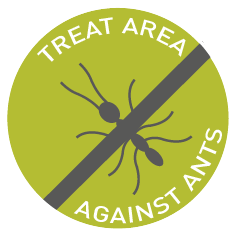
Treat area against ants
-

Hang product on the plant
Disclaimer
BioBee Sde Eliyahu Ltd. produces and markets biological products. Production is carried out using innovative techniques under controlled quality assurance standards such as ISO 9001:2015, as well as IOBC’s international standards for mass-production of insects. All products are tested to meet specification requirements before leaving the factory.
The success of biological pest control is affected by the crop’s initial pest population (upon application of the product), weather conditions and chemical residue present in the crop, among other possible aggravating factors.
Under no circumstance shall BioBee be liable for the outcome of the implementation in the field, as it has no control over local conditions, the application method, or the possible improper treatment/storage of the product.
